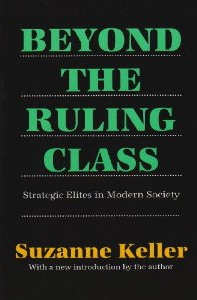College Admissions
College Admissions
Preparing for College
The Best College for You
What to Study
Applications
Education Options
Education Options
Private Universities
Public & State Universities
Community Colleges
Scholarships
Scholarships
African American Scholarships
Latino Scholarships
Native American Scholarships
Women Scholarships
College Grants
College Grants
Federal Grants
Merit Based Grants
Need Based Grants
Student Loans
Student Loans
Federal Student Loans
State Student Loans
No Co-signer Student Loans
Bad Credit Loans
Student Loan Consolidation
College Survival
College Survival
Financial Aid Tips
The Digital Student Blog
A lesson in how not to govern.
Once upon a time we Mainers had a saying – it was a bit self-aggrandizing but hey, we are a proud, pick ’em up by the bootstraps people:
As Maine goes, so goes the nation.
But sadly, today, if that is true the country is in real, big trouble.
The man that has come to be known, not so fondly mind you, as “Front Page LePage,” seems intent on being a national media darling. So far, he has been the gift that keeps on giving, garnering the attention of pundits and comics from every corner of the country.
This past week, the man who once falsely insisted Maine taxed everything, including bull semen, attempted to get in the last word with Maine novelist Stephen King. Maine’s most famous author recently made headlines when he referred to three of the nation’s new governors, Maine’s Paul Lepage, Florida’s Rick Scott, and Wisconsin’s Scott Walker as Larry, Curly and Moe. Worse yet, he also called the Maine governor “stone brain.”
These are more than pretty strong words – that are, well, downright insulting to the governor. But in fairness to Mr. King, barely three months into his first term as Maine’s governor Mr. LePage appears intent on making the author’s comments seem almost innocuous in comparison.
Less than three months removed from calling the NAACP a special interest group and telling their leadership “they could kiss his butt,” LePage hit new lows when he asserted that the only bad thing about a chemical additive like BPA is that it might give women “little beards.”
That came before the more recent events when he fired his biggest shot across the bow thus far. It is important to note that during King’s extensive dissing of the three governors he also happened to offer some significant support for unions and their importance to American workers.
“Remember, when these people talk to you about it, if you like the weekend, thank a union guy,” stated King.
“If you like a 40-hour week, thank a union guy. If you like a day’s honest pay for a day’s honest work, thank a union guy.
This past weekend the governor went through on his promise to have a mural depicting Maine’s labor history from 1800 to the present removed from the Department of Labor building. The panels showing child labor, Rosie the Riveter at Bath Iron Works, and striking workers disappeared over the weekend.
In one-upping those who would support unions, he also managed to avoid dealing with potential protests that were rumored to feature people forming a human chain to block the mural’s removal.
It seems he sort of had a plan for that as well, telling television reporters that if people did take such a step he would “laugh at them, the idiots. That’s what I would do. Come on! Get over yourselves!”
God forbid if Maine’s recent gubernatorial election is a bellwether for the next leader of the free world.
Not when the man seems like a character straight from one of Mr. King’s novels.
According to the organization’s history, the NCAA was “founded in 1906 to protect young people from the dangerous and exploitive athletics practices  of the time.” The organization was formed based on concerns about ‘the rugged nature of early-day football” and that “football was run by student groups that often hired players and allowed them to compete as non-students.”
of the time.” The organization was formed based on concerns about ‘the rugged nature of early-day football” and that “football was run by student groups that often hired players and allowed them to compete as non-students.”
Exploitive athletics practices?
Non-students competing?
Exploitive Athletics Practices
The NCAA basketball tourney, affectionately dubbed “March Madness” or “The Big Dance,” raised in excess of $600 million in ad sales for the 2010 Tournament. In contrast, the only sporting event that raised more dollars was the NFL Playoffs and its culminating Super Bowl – $793.8 million.
The NCAA men’s basketball tournament tally of $613.8 million nearly matched the totals of the other two major professional sports leagues combined (NBA Playoffs and Finals – $417.7, MLB Playoffs and World Series – $345.3).
Dr. Boyce D. Watkins, a leading social commentator, goes beyond calling the current college athletic structure exploitative. Dr. Watkins insists that “NCAA is engaging in a form of academic apartheid.” After all, most of the “individuals doing the work to earn this income are African American, and those receiving most of the economic benefits just happen to be white.”
Somehow, as Dr. Watkins notes, the NCAA would have everyone believe that “a scholarship” and a “pair of sneakers” is somehow “Quid pro Quo” for the tens of millions of dollars these players bring in.
Exploitive athletics practices?
Non-students Competing
 According to the Institute for Diversity and Ethics in Sports, this year seven teams in the NCAA tournament posted a 100 percent Graduation Success Rate: Belmont, Notre Dame, Villanova, Wofford, Illinois, BYU, and Utah State. But that was clearly the exception.
According to the Institute for Diversity and Ethics in Sports, this year seven teams in the NCAA tournament posted a 100 percent Graduation Success Rate: Belmont, Notre Dame, Villanova, Wofford, Illinois, BYU, and Utah State. But that was clearly the exception.
Consider the following graduation rates for some of the other participants: these 25 would receive an F if we were to use the standard ten point college grading scale:
Arizona 20%, UAB 25%, Connecticut 31%, Temple 33%, Georgia 36%, Michigan 36%, Akron 38%, Kansas State 40%, Tennessee 40%, Texas 42%, Southern Cal 42%, Morehead State 43%, Florida 44%, Kentucky 44%, Missouri 44%, Washington 44%, Louisville 50%, Michigan State 50%, North Carolina Asheville 50%, Texas San Antonio 50%, Cincinnati 53%, Syracuse 54%, Virginia Commonwealth 56%, Memphis 58%, San Diego State 58%.
Another ten would receive a D (60-69): Alabama State, George Mason, Hampton, Indiana State, Ohio State, Old Dominion, Pittsburgh, Purdue, Texas A&M, and UNLV.
Non-students competing?
From the same report, 30 men’s tournament teams (54 percent) had a 30 percentage point or greater gap between white basketball players graduation rates and those of African-Americans.
Exploitive athletics practices?
NCAA Today
The issues may be different but the context is the same. College athletics has once again lost its way (as it did back at the turn of the prior century) it’s just that this time the organizing body is in the middle of the issue.
The absurdity of the current situation now has people calling for the players to be paid and for the colleges to offer a major in the sport that the athlete participates in. Neither of these make sense if one hearkens to the essence of college athletics and the idea that these games are supposed to feature amateur student-athletes.
But therein lies the rub – that notion is no longer even remotely applicable when it comes to the NCAA in its two major revenue sports: football and basketball. The NCAA long ago slid down a path into an entertainment industry that features non-students playing the lead role.
And the organization seems perfectly content with the current exploitation of those willing to play the role.
They stole the show:
ESPN, The Magazine, reveals the insights of the top 50 high school football recruits.
 Though little information has made its way into mainstream media, ESPN the Magazine has placed a teaser video on the Internet summarizing the key results of their survey of the top fifty high football recruits. Those hoping to feel better about college football or the NCAA will be appalled by what these athletes had to say.
Though little information has made its way into mainstream media, ESPN the Magazine has placed a teaser video on the Internet summarizing the key results of their survey of the top fifty high football recruits. Those hoping to feel better about college football or the NCAA will be appalled by what these athletes had to say.
Perhaps the ugliest comes from the simplest of questions:
– when asked as to the percentage of what college recruiters said to them was a lie the average response from these elite athletes was 61.5%!
But a few other elements certainly disappointed us as well. When asked:
– if you believed nobody would find out, more than a quarter of the athletes (27.6%) indicated they would take a $50,000 payment from a recruiter.
And furthermore:
– more than a quarter of them (26%) also indicated that teammates at their high school had taken some form of performance enhancing drugs.
 When making their official recruiting trips to college campuses:
When making their official recruiting trips to college campuses:
– 57.1% of these elite athletes indicated that drugs or alcohol were available to them during the visit.
And if you thought the sordid Lane Kiffin use of hostesses at Tennessee to recruit players was unusual, consider it common practice:
– 62.7% indicated that the schools recruiting them were using hostesses to try to influence their attendance.
Worse yet:
– 30.5% of them indicated that those hostesses had an impact on their choice.
There was one positive message however. When it comes to the choice of college it is clear that what parents think matters to these athletes:
– more than two thirds (68.4%) responded to the question “if your parents picked a school for you” that it would be the same as their pick.
As for the greatest influence:
– the greatest was by dad at 52.2%, 37.8% said it was mom;
– and just 10% said their high school coach provided their greatest influence (despite the role football was going to play in their college lives).
For all the sordid details, head on over to the ESPN.
Famed fifth grade chorus about to carve another notch into their incredible performance belt.
For Gregg Breinberg the signature life-lesson he wants for his choral students is simple. The energetic director of the PS 22 Internet sensation continuously espouses one fundamental teaching point: with hard work, truly anything is possible.
 Watching his charges on video you get a sense of the effort that he and the students put in each and every day. But even Breinberg had to admit that the group’s latest accomplishment may have been beyond anything he could have expected.
Watching his charges on video you get a sense of the effort that he and the students put in each and every day. But even Breinberg had to admit that the group’s latest accomplishment may have been beyond anything he could have expected.
Internet sensation or not, it is quite another thing to be invited to perform at Hollywood’s night of nights, the evening the Academy recognizes the year’s best cinematic performances.
Selection to Perform at the Oscars
The invitation to perform at the Oscars came to Breinberg a few weeks before Bruce Cohen, one of the show’s two producers, revealed the selection to the chorus. Though obviously proud of his charges, Breinberg admits he was having difficulty matching Cohen’s enthusiasm as the chorus was learning the news. After all, an invitation was one thing.
“There’s no way on God’s green is this going to happen!” Breinberg recalls thinking. “I just chalked it up to being another amazing offer we would have to turn down because I never thought we’d get the approval from the New York City Department of Education.”
It could have been that the Oscars represented yet another level. Or it could have been that after many no’s, the school administration simply had a change of heart. Whatever the case, to Breinberg’s surprise he got the call one week later that the trip would be a go.
All 64 of the fifth graders will be making the trek down the famous red carpet. Fifteen chaperones, all of whom are NYC Department of Education staff, will accompany the youngsters to ensure that the group is present and ready when the curtain goes up on February 27th.
Given how carefully scripted the ceremony is, it comes as no surprise that the chorus will not be performing one of their many eclectic options. Instead, they will sing the Judy Garland classic, Over the Rainbow, a song dictated by the Oscar brass.
But in a testament to Breinberg and his students, the Academy gave the choral director complete freedom to craft the vocal arrangement. And in perhaps the ultimate tribute to the Breinberg’s ability to arrange, the harmonies that he sculpted have been incorporated into the (tentative) score.
Year’s Proudest Moment
Amazingly, for the well-grounded educator, the group’s selection to perform in Hollywood is not listed as his favorite moment of the year. Instead he points to a very emotional day when the chorus had the great fortune to make some music with the boys from Ithaca College.
The Ithacappella visit coincided with the day of the funeral for Breinberg’s 96-year-old grandmother, Bertha Hall. “I was swinging back and forth with a decision on whether or not I should cancel the visit,” explains Breinberg. “In the end, my mom convinced me to keep the engagement, as that is what my grandmother would have wanted.
“She was to me what every person should have in this life, that source of unconditional love,” reveals Breinberg. “So much of who I am I owe to her and I was truly blessed to have her in my life as long as I did.”
Sharp as a tack, “nana” stood an inch shy of five feet in height. And though humility was among her greatest traits, “nana’s” grandson insists she was always sitting the tallest and the proudest at the PS22 Chorus concerts.
“She was a great lover of music and a wicked piano player,” adds Breinberg. “I don’t have a fraction of her chops on the keyboard – but what I do have is all from her.”
As for the decision to go ahead with the Ithacappella engagement, the maestro is thankful. The day became one every music educator can relate to, one of those ‘It’s not about the size of the star, it’s about the music being made and the energy level.’
“Last year, when we sang with Ithacappella, it was a blast. This time it was something more spiritual, as evident in the two groups’ collaboration on Imagine by John Lennon.
“We had no plans to do that song, and the guys just joined in, but it was truly one of those special musical moments that all involved will never forget. And that’s what we’re all about at PS22.”
What’s Next
There is little doubt that fame has not changed Breinberg, the only music teacher on the planet who has told us he has never seen Glee. So if with hard work, truly anything is possible, the question becomes what’s next?
A performance at the Grammy’s? Selection to do the half-time show at The Super Bowl?
 “I want to be the first elementary school chorus to sing on the moon,” pronounces the man dubbed by some reporters as an overgrown fifth grader.
“I want to be the first elementary school chorus to sing on the moon,” pronounces the man dubbed by some reporters as an overgrown fifth grader.
“I think with regard to these extraordinary kids, it’s quite alright to dream big,” chuckles Breinberg. “But in all seriousness, an album and a documentary have to happen for these kids – eventually in some way, shape, or form.
“I’m hoping the Oscars’ appearance has awakened the powers that be to the power of these kids – that they will now allow us to pursue many of the amazing opportunities they’ve turned down for us in the past.”
But for now, the focus is on the Oscars. And though being selected is not yet his favorite moment this year, he acknowledges that seeing the excitement on his students faces when they take the stage could well become his proudest ‘proud papa’ moment to date.
 When it comes to technology, the limits (and the frustrations) appear to lie only within the confines of non-technical minds. But thanks to the likes of John Kestner, a graduate of the MIT Media Lab, we have a vision of how technology might mix with the physical to truly revolutionize the world.
When it comes to technology, the limits (and the frustrations) appear to lie only within the confines of non-technical minds. But thanks to the likes of John Kestner, a graduate of the MIT Media Lab, we have a vision of how technology might mix with the physical to truly revolutionize the world.
Physical Email
Snail mail is so past tense today, what with the power and immediacy of email. And photos, remember when they had to go to a developer and you had to wait to get a sense of just what you had been able to capture. Actually, if you are young enough you may not remember that at all.
But there is a rub and it is the need for a certain level of technical savvy – email transcends snail mail only if you have basic computer literacy skills, an email account, and the hardware to go along with it. For Grampa, those computer literacy skills could interfere rendering technology a problem instead of a solution.
So imagine a world where technology still rules but for Grampa, tech skills could be removed from the equation. I use Grampa as my example with all kindness and my representative example for all those out there who remain frustrated because they simply cannot find enough time to keep up with the ever-changing technological world.
Imagine, if you would, the Tableau, a typical little night stand next to your bed, one with a single drawer that could be slid open to see what is inside. We are talking about the same type of physical drawer that one opens to find a pair of socks or some clean underwear.
But instead of a drawer, suppose it is a physical inbox. Imagine that Grampa’s children have some great photos of the grandchildren building a snowman during the first winter snowfall. They no doubt want to send them along to Gramps and would likely download them from their camera, attach them to an email, and then send them along. Now suppose instead of Grampa having to sit at some computer to log on and check his email (he thinks that logging on to a computer and accessing an email account is as enjoyable as shaving is to a 20-year-old male), he could get those photos in the traditional format.
Suppose instead that little desk dresser drawer could work like a physical mail chute, that instead of those emailed photos arriving in the inbox of some computer account they were converted to traditional paper photos without the slightest input from Gramps. Then add to that one last little fine touch, that all Gramps has to do is open the drawer of that little nightstand and lo and behold, what he would find there the very items he was so used to seeing: those little 4×6 sheets of fully developed photos, prints that he could simply lift from his drawer and handle as he had done as a younger man.
Taking that one step further, imagine Gramps sitting down at a table to pen a thank you note on paper. But instead of searching out an envelope and finding the requisite snail mail address or sitting down at that damn computer, he could simply drop his paper version in his little drawer and physically close it. His work done, technology would take over to ensure it made it digitally to the appropriate person.
Proverbial Wallets
But when it comes to the likes of John Kestner, well the sheer genius lies in the ability to fuse the digital with the physical in a way that transcends generations as well. Grampa of course has his finances in order – he is never over-extended or over-drawn because he pays for everything with cash, and when there is no cash to be found in his wallet, well he simply goes without.
But his grandchildren, such is not the case. Raised in a credit and debit card world, his flesh and blood consistently make decisions about finances that are essentially removed from the consequences.
The wallet is almost always empty except for the plastic – the bank accounts are sometimes flush and other times nothing short of destitute. The removal of the physical connection, the one that rules Grampa’s finances, often causes major issues.
Kestner introduces us to another concept, the Proverbial Wallet, a bit like the conversion of the cell phone to the smart phone but again with just a bit more of a physical twist. The goal is to help the young un-abstract virtual assets by providing tactile feedback that even Grampa could relate to.
One such option would be the Bumblebee – the wallet that buzzes via a vibrating motor whenever the bank processes a transaction. When the buzz occurs, it reminds you of the purchase you made but have forgotten about, of that automatic withdrawal to pay for your wireless access or even inform you as to when your partner has charged something to your account. For those who need real tactile reinforcement, we could take this a step further, build in an electronic stinger that provides a nice little zap whenever you are overdrawn or have failed to make a payment on time.
Or another Kestner wallet choice would be the Mother Bear, a folding leather contraption that protects your money when you need to be thrifty. It is equipped with an adjustable hinge that resists opening, greater resistance when your account is hitting bottom, less resistance when you are flush with cash. It could even include a bit of adjustable card stickiness making it substantially more difficult to pull the credit card out as you approached your credit limit.
But perhaps the most inviting in our visual world would be the Peacock, a wallet that swells and shrinks to reflect account balances. This would be my choice though I would want to add a little plumage and color when swollen. That way my assets could be pulled at just the right moment to attract members of the opposite sex.
World of Science Fiction
These ideas sound wild, like the ones we saw when we read the great work of Arthur C. Clarke or Isaac Asimov novel. But they represent the place where technology could truly improve on the quality of life for those without a technical bent.
As Gramps always says about that new phone we gave him last year.
“If I can’t make it work, then the damn thing ain’t all that smart.”
Some people use the adjective “good” to describe the debt students take on during the pursuit of their college diploma. We would use a different word to describe it:
Oppressive
A quick check of the dictionary has this to say about the adjective oppressive:
1. burdensome, unjustly harsh, or tyrannical.
2. oppressive sorrows, causing discomfort by being excessive, intense, elaborate, etc.
3. distressing or grievous:
 So now I am sure some of you would insist that we are being a tad bit excessive with our rhetoric, that we are invoking extreme levels of hyperbole in our use of the word oppressive. We would suggest you need to think again.
So now I am sure some of you would insist that we are being a tad bit excessive with our rhetoric, that we are invoking extreme levels of hyperbole in our use of the word oppressive. We would suggest you need to think again.
As proof positive, today we learned that 42 Tennessee nurses have had their licenses suspended because they were in default on their student loans. That’s correct, 42 nurses lost their ability to actually earn a living in their field of study because they had not paid off their loans.
Incredible Power
A disciplinary action report released this month by the Tennessee Department of Health made this issue public. Though only brought to light now, the report revealed the large number of suspensions actually took place last October.
The suspensions were based on the actual implementation of a law that dated back to 1999. At that time, state law was enacted that allowed officials to revoke the professional licenses of those in default on their student loans.
That bears repeating, the law has been in effect for the better part of ten years but state authorities were just now getting around to cracking down on those students that were delinquent. The Chattanooga Times goes on to note that 20 of the nurses have been able to work out repayment plans and have subsequently been reinstated. Of course that also means that the other 22 have not done so.
Across the state of Tennessee, since the recession began in 2007, loan default rates have risen to about 9 percent. This means that one of every eleven students in the state is in default.
Of course, the basic assumption that the local authorities make (read the article) is that these individuals are simply not taking their responsibilities seriously. That could well have been the case with the 20 who were able to square things away immediately.
But it could well be a different story for the other 22. Perhaps they were not simply ignoring their loans but instead had reached the position where they were over-committed and thus unable to pay their loans along with their basic living expenses. Nurse salaries being what they are, that could just as well be the case.
Need to Limit Your Debt
We have noted on many occasions the importance of limiting the amount of money students borrow for their education. We have expressively made mention of the need for students to understand the terms of student loans prior to signing on the dotted line.
When you borrow money for a car and default, you lose the car, your down payment and any money you paid to date on the vehicle. When you borrow money for a house and default, you lose the house, your down payment and any money you paid to date on the house.
 In both cases, your credit rating suffers as well. But in both instances, the debt does not follow you – instead you can keep your wages and your job and thus move on with life.
In both cases, your credit rating suffers as well. But in both instances, the debt does not follow you – instead you can keep your wages and your job and thus move on with life.
Not so with student loans. They will follow you. If you default on your student loans the IRS can withhold your tax return and the government can garnish a portion of whatever you earn to make payments on the loan. And, as noted in the Tennessee case, the government can go so far as to revoke your ability to earn a living in your chosen field by suspending your professional license. We suspect that the situation in Tennessee is harbinger of more to come in this arena.
In very simple terms, student loans are unlike any other form of loan you can take out. And if you find yourself in tough economic straights, well then it appears you would then be privy to why we call student loans oppressive.
There is so much wrong with college athletics that it can be difficult to focus on any one issue. But it is easy to see that those in charge have time and time again sold their souls.
So it is not surprising that the recent BCS Championship game took place on January 10th, a full 37 days after the completion of the college football season. Playing the game at such a late date is a function only of the dollars created – it is certainly not done with any consideration of the young men playing the game, the ones that the National Collegiate Athletic Association wants us to call student athletes.
 Instead, there ought to be another term, something along the line of “scholarship athletes.” Because, quite frankly there is very little about big time, male college sports that is about students.
Instead, there ought to be another term, something along the line of “scholarship athletes.” Because, quite frankly there is very little about big time, male college sports that is about students.
But I cannot find fault with the athletes themselves, so young and easily led that the vast majority actually think that if the cards fall right, they will one day make it to the NFL or the NBA. No, the fault lies with the adults and the guidelines set forth by the NCAA, an organization that has earned its blogosphere nickname, the “No Credibility Athletic Association.”
Yes, there is so much wrong that I am seldom surprised when I see yet another example of hypocrisy. But it did happen this past week when I had the good fortune to read a recent Gregg Doyel column at CBSSports.com.
The situation involves Rob Bolden, a freshman quarterback at Penn State who became the first true freshman QB in nearly a century to start a game for the storied Nittany Lions. To get the full detail, you can head over to Doyel’s column but it is yet another tale of how college athletics makes so little sense.
In a nutshell, after a concussion during the seventh game of the season, Bolden found himself on the bench. As the season worked its way towards its January conclusion, it became apparent to Bolden that he was not destined to get off the bench.
Accordingly, the youngster asked for a release from his scholarship so that he could transfer to another school. But in a sign of just how wrong the entire college-athletics process is, the coaching staff at Penn State can actually veto such a request.
And according to Doyel, the staff did say no.
The result? Without Penn State signing off, Bolden’s only scholarship for 2011-2012 can come from Penn State. Even though many other schools would happily grant him one (he was offered scholarships at multiple schools initially), they cannot without the release. Therefore, to transfer, Bolden must find the money to pay his own way into another college. In a nutshell, under current NCAA rules this young man is the property of the Penn State football program.
To show the blatant hypocrisy, Doyel goes on to remind us of the situation involving the recent signing of former University of Connecticut coach Randy Edsall by the Maryland Terrapins. According to Doyel, Edsall was in talks with the Maryland administration about his new job even as he was first preparing and then actually coaching his team in the biggest bowl game in UConn history. Not only had Edsall apparently agreed to a deal, instead of returning home on the plane with his team flew instead to Maryland where he accepted the new coaching position.
So here again is why people call the NCAA the “No Credibility Athletic Association.”
Edsall “got an enormous raise and can coach at Maryland right away in 2011,” notes Doyel. “But if Rob Bolden transfers to Maryland, he’d have to sit out the 2011 season — and pay his own way as a student.”
Is it not any wonder that we have people actually stating that it is time to pay college athletes. That suggestion belongs right up there with the idea that colleges should construct majors so that these individuals can actually major in football or basketball.
Yes, there is so much wrong with college athletics it is difficult to know where to start. But seemingly every day we hear tell of another tale where the only thing that matters is money and yet another situation where the word student is simply removed from the term student-athlete.
There are times when we are reminded of just how much society has changed over the last 100 years. The recent death of Sociologist Suzanne Keller represents just such a case.
Professor Keller holds the important distinction of being the first woman ever granted tenure at Princeton University. Though it is very hard to imagine, she was granted that status in 1968 after having begun her association with the school as a visiting professor just two years before.
We say hard to imagine because it does not seem possible that it would take until 1968 for Princeton to have a tenured women professor. But it shows just how far women have had to come to break the glass ceiling.
 And now, barely forty years later, four of the elite Ivy League schools, once the bastion of male dominance, currently feature female presidents.
And now, barely forty years later, four of the elite Ivy League schools, once the bastion of male dominance, currently feature female presidents.
Historical Perspective
Yes 1968 seems quite late considering the progress women had made since the turn of the century. First, Professor Keller’s appointment came nearly 50 years after the ratification of the 19th Amendment that prevented any citizen from being denied the right to vote based on that citizen’s sex (August 18, 1920).
It would also be a full 52 years after Jeannette Ranking of Montana became the first woman to serve in Congress (1917) and another 36 years after Hatie Wyatt Caraway became the first woman to ever be elected to the US Senate (1932). And it would be 32 years after Ruth Benedict became the first tenured woman at Columbia University in 1937.
But of course, Princeton remained all male until the late 1960s. It was not until 1961 that Sabra Follett Meservey, the first woman in the University’s history, would be enrolled as a full-time degree candidate. Meservey entered as a graduate degree student.
The first full-time undergraduate female students were admitted in 1963 when the Critical Languages Program (CLP) was introduced. A one year program offered during a student’s junior year, this program allowed students from other colleges to spend a year at Princeton studying Arabic, Chinese, Japanese, Persian, Russian, and Turkish languages and related regional studies. The first five women to attend the CLP program at Princeton were actually dubbed “Critters” by resident Princetonians.
It would not be until September of 1969 that the first freshman class would feature females. That year, 101 freshman and 70 transfer students joined the ranks of the Princeton student body. Four year’s later when the first graduating class of coeds left campus one young lady would be the school’s only Marshall scholarship winner that year while another would be one of the school’s three Fulbright recipients.
Importance of Women and Tenure
The much sought after tenure designation has been a critical choking point for women seeking advancement in higher education. It is the first, and most necessary step in a process that can one day lead to administrative leadership positions such as dean and of course, university president.
Tenure has always been a critical issue for all educators who seek to become full professors. It begins with the enormous demands placed on potential candidates to prove themselves early on in their teaching careers.
But the greatest issue is that the quest for tenure, once underway, puts faculty on a time clock. And that clock would never stop easily, most certainly not for pregnancies and the demands of balancing life with work for women.
 In retrospect, the appointment of Keller had to have been a relatively easy one for the school. The sociologist, known for her pioneering research topics on social stratification, community life and elites, authored what has been deemed one of the ground-breaking texts on elite life in America, “Beyond the Ruling Class: Strategic Elites in Modern Society,” published in 1963.
In retrospect, the appointment of Keller had to have been a relatively easy one for the school. The sociologist, known for her pioneering research topics on social stratification, community life and elites, authored what has been deemed one of the ground-breaking texts on elite life in America, “Beyond the Ruling Class: Strategic Elites in Modern Society,” published in 1963.
The native of Vienna, Austria, would later write “Community: Pursuing the Dream, Living the Reality,” regarding her research on middle class life and the need for people to have a sense of connectedness to a larger framework.
Special Place in Princeton History
Professor Keller moved to New York as a child and would later become an American citizen. She had an exemplary academic record completing her undergraduate degree at Hunter College, a master’s degree in social work from Rutgers and a Ph.D. in sociology from Columbia University.
But the respected researcher will always be known by her work at Princeton where she also played a major role in promoting women’s studies as an academic subject and taught the university’s first course on gender during the 1970s. That represented the first of the necessary steps towards the development of women’s studies as a formal program at the once all-male university.
Her place in Princeton history was recognized by Nancy Weiss Malkiel, Princeton’s dean of the college and a professor of history. Dean Malkiel offered the following appraisal of Professor Keller’s importance at Princeton:
“As the first woman appointed to a tenured professorship at Princeton, Suzanne Keller holds a unique position in the history of the university. As a remarkable scholar, teacher and mentor, and a wise and generous colleague, she holds a special place in the lives and hearts of generations of Princetonians.”
According to University of North Texas professor Jennifer Acker
marriage is very easy to get into. In fact in her home state one only needs a driver’s license to apply for a marriage license (could someone connect those dots for us?).
But, Professor Acker notes, marriage is not so easy to escape.
“Divorce ranks number two on the list of most stressful life events (with number one being the death of a spouse),” she explains. “Rarely do people walk away from divorce completely unscathed.”
Believing that if couples were better prepared for marriage fewer would seek divorce, Acker teaches one of the more unique courses to be offered on a college campus: Romantic Relationships: Theories, Research and Application. In simplest terms, it is a class that is designed to teach young people about love and romance.
 And while the traditionalists may be cringing at the fact that students may actually earn three credits towards their college diploma discussing such a topic, we do understand that today’s fast paced and stressful life is much easier to handle if one is able to share their life as part of a successful relationship.
And while the traditionalists may be cringing at the fact that students may actually earn three credits towards their college diploma discussing such a topic, we do understand that today’s fast paced and stressful life is much easier to handle if one is able to share their life as part of a successful relationship.
Legitimate Academic Study?
The description from the course catalog:
4343. Romantic Relationships: Theories, Research and Application. 3 hours. An in-depth, comprehensive exploration of the theories, research and applications thought to promote relationship success in a wide variety of romantic relationships, including dating and marital relationships.
Professor Acker offers her Romantic Relationships senior level course to a growing number of students each year. About half of the 60 students enrolled this year are taking the class as part of the Development and Family Studies program in the College of Education.
But the other half apparently spans a wide variety of majors, with each student offering a variety of personal reasons for taking a course that seeks to help students understand what constitutes a healthy romantic relationship.
Professor Acker, a self-proclaimed Star Wars fan, told the Dallas Morning News that her course at the college in Denton focuses on educating students in areas such as dating, attraction and friendship. Even more importantly, she insists it does so outside of those traditional keg parties or casual hook-ups.
As one might expect, recent news reports did little to enhance the course as legitimate academic inquiry. Instead, newspaper accounts highlighted the class as part of its Valentine’s Day reporting.
So the focus was on the real way to tell if he loves you (it’s not in his kiss – it’s in his eyes) and that the relevant info was being delivered by the students “Love Lecturer” who guided the students through the “twists and turns of Cupid’s arrow.”

Pertinent Nonetheless
While so much of the reporting focus was on the famous men and women the students found attractive, from James Franco to Carrie Underwood, it was nice to hear some intelligent individuals focus in on the real substance of the course.
One such senior, Zuleyma Rogel, who just so happens to be pursuing a double major in social science and political science, told the Dallas News that “she has noticed a strong shift in marriage dynamics as more women have pursued careers outside the home.” The paper went on to note:
Rogel says that academics and a good career are important to her, but that she believes that true success in life will come from becoming a wife and a mother, so she wants to learn how to balance those two segments of life.
While many reveal that they are taking the class to fulfill requirements for their majors, another group believes that the course will help them in their future careers as counselors. Professor Acker also insisted that college was a particularly good time to learn about creating healthy partnerships.
And as for the demise of the American family, Acker believes a good portion comes from today’s hectic lifestyles.
“I think people become so engrossed in their busy lives and day to day activities that they forget to make time for one another, explains Acker. “They either rarely communicate or do so ineffectively and with an undertone of stress. This lack of communication just compounds any issues that may already be present.”
Of course, as we noted the class has its critics. There are those that insist the course is precisely what is wrong with higher education in America, that the class is neither “a legitimate academic pursuit nor a useful intellectual exercise.”
Those naysayers certainly have not gotten the attention of a student body that is lining up in droves to learn how to make a relationship work. And given the clear importance of two parent households for children, a course that seeks to help young people establish long lasting relationships just might be the most important one a student takes while in school.